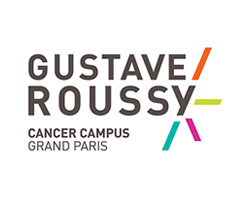Redifferentiation of radioiodine-refractory thyroid cancers
Résumé
The management of radioiodine refractory thyroid cancers (RAIR TC) is challenging for the clinician. Tyrosine kinase inhibitors classically prescribed in this setting can fail due to primary or acquired resistance or the necessity of drug withdrawal because of serious or moderate but chronic and deleterious adverse effects. Thus, the concept of redifferentiation strategy, which involves treating patients with one or more drugs capable of restoring radioiodine sensitivity for RAIR TC, has emerged. The area of redifferentiation strategy leads to the creation of new definitions of RAIR TC including persistent non radioiodine-avid patients and ‘true’ RAIR TC patients. The latter group presents a restored or increased radioiodine uptake in metastatic lesions but with no radiological response on conventional imaging, that is, progression of a metastatic disease, thus proving that they are ‘truly’ resistant to the radiation delivered by radioiodine. Unlike these patients, metastatic TC patients with restored radioiodine uptake offer the hope of prolonged remission or even cure of the disease as for radioiodine-avid metastatic TC. Here, we review the different redifferentiation strategies based on the underlying molecular mechanism leading to the sodium iodide symporter (NIS) and radioiodine uptake reinduction, that is, by modulating signaling pathways, NIS transcription, NIS trafficking to the plasma membrane, NIS post-transcriptional regulation, by gene therapy and other potential strategies. We discuss clinical trials and promising preclinical data of potential future targets.
Fichier principal
 Redifferentiation of RAI refractory thyroid cancert.pdf (1.32 Mo)
Télécharger le fichier
Redifferentiation of RAI refractory thyroid cancert.pdf (1.32 Mo)
Télécharger le fichier
| Origine | Fichiers produits par l'(les) auteur(s) |
|---|

